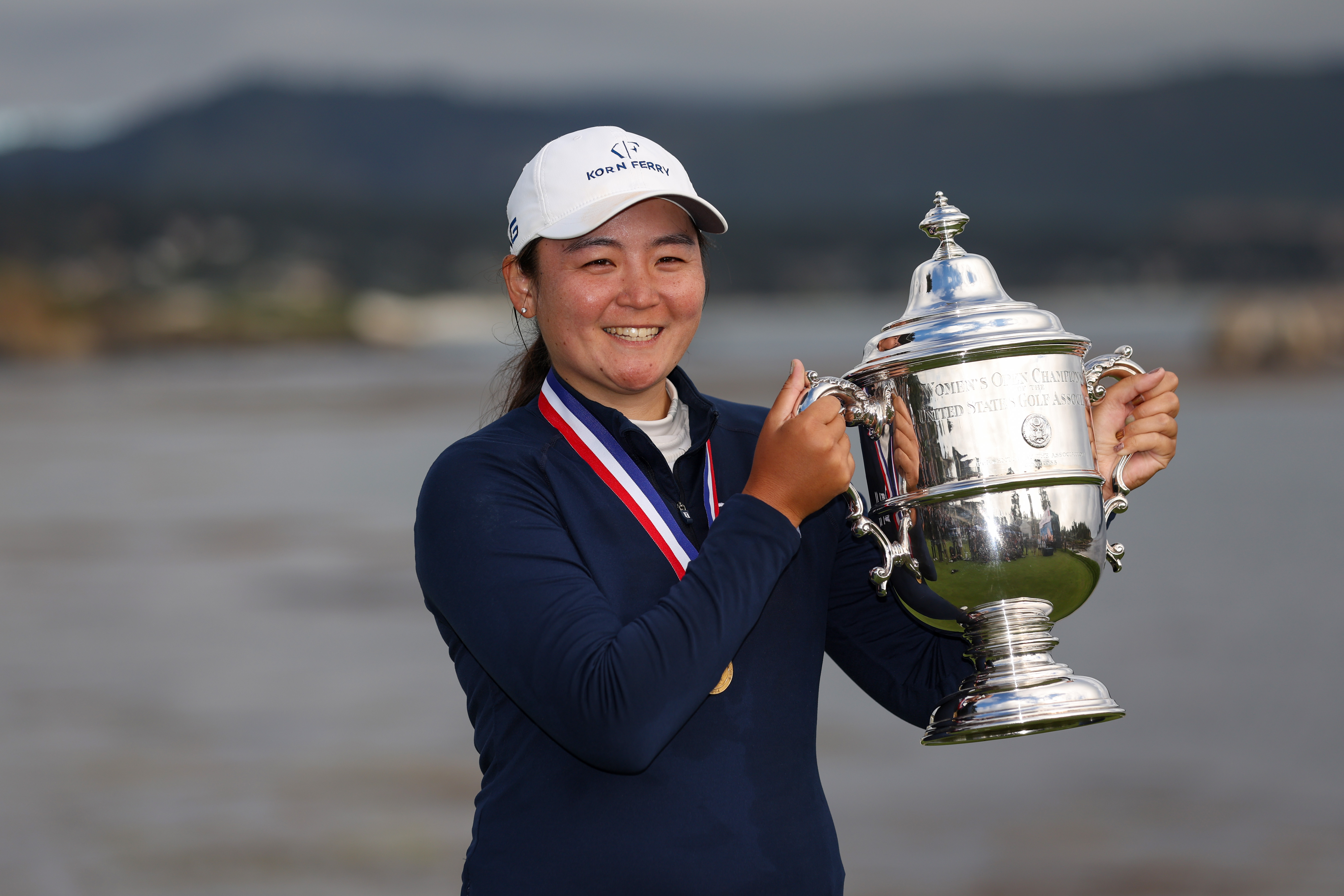
The US Women's Open is one of 15 national golf championships run by the USGA and is generally regarded as the best week on the women's calendar. This year Allisen Corpuz defends the title that she so memorably won at Pebble Beach as the Championship broke new ground at the iconic links.
Here we look at how the Championship has evolved in its 78-year history and who has shone and who has missed out on women's golf's most glittering prize.
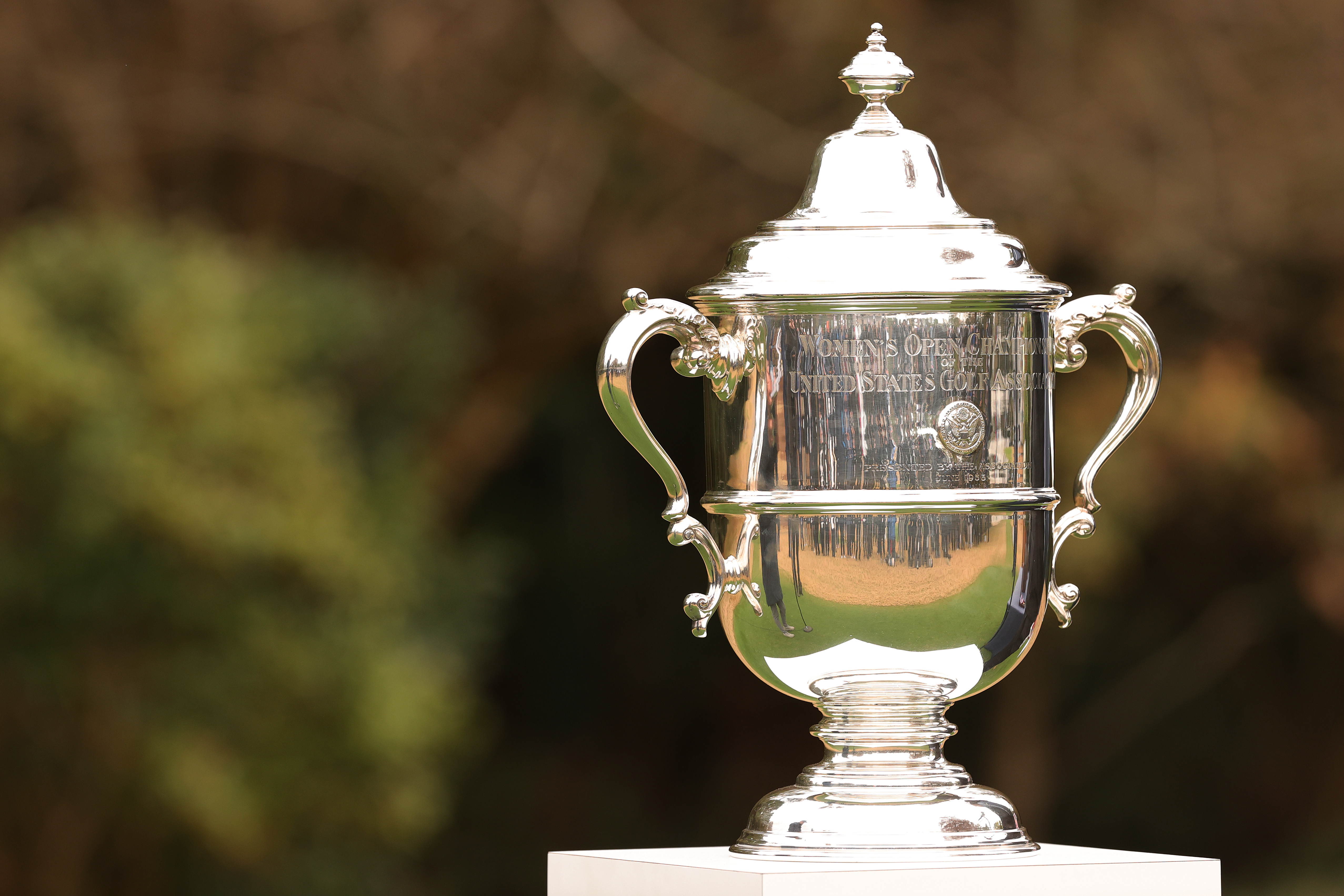
1. Who Can Play In The US Women's Open?
There is no age limit to play in the US Women's Open with the youngest ever qualifiers being 11-year-old Lucy Li (2014) and 12-year-old Lexi Thompson (2007). This year 1,897 players attempted to qualify for Lancaster Country Club with any hopeful amateur having to possess a USGA handicap of no higher than 2.4.
There will be a number of amateurs in the field including the winners (and runner-up) of the US Women’s Amateur, US Girls’ Junior Championship, US Women’s Mid-Amateur Championship, Women’s Amateur Championship, Mark H. McCormack Medal in 2023 and this year's winners of the Augusta National Women’s Amateur and NCAA Division I Individual Golf Championship.
This year the US Women's Open purse will be a whopping $12m, up $1m from 2023 and more than double than just three years ago. The winner in Pennsylvania also receives the Mickey Wright Medal, custody of the Harton S. Semple Trophy for one year, exemption into the next 10 US Women's Opens and next five years of the other four Majors.
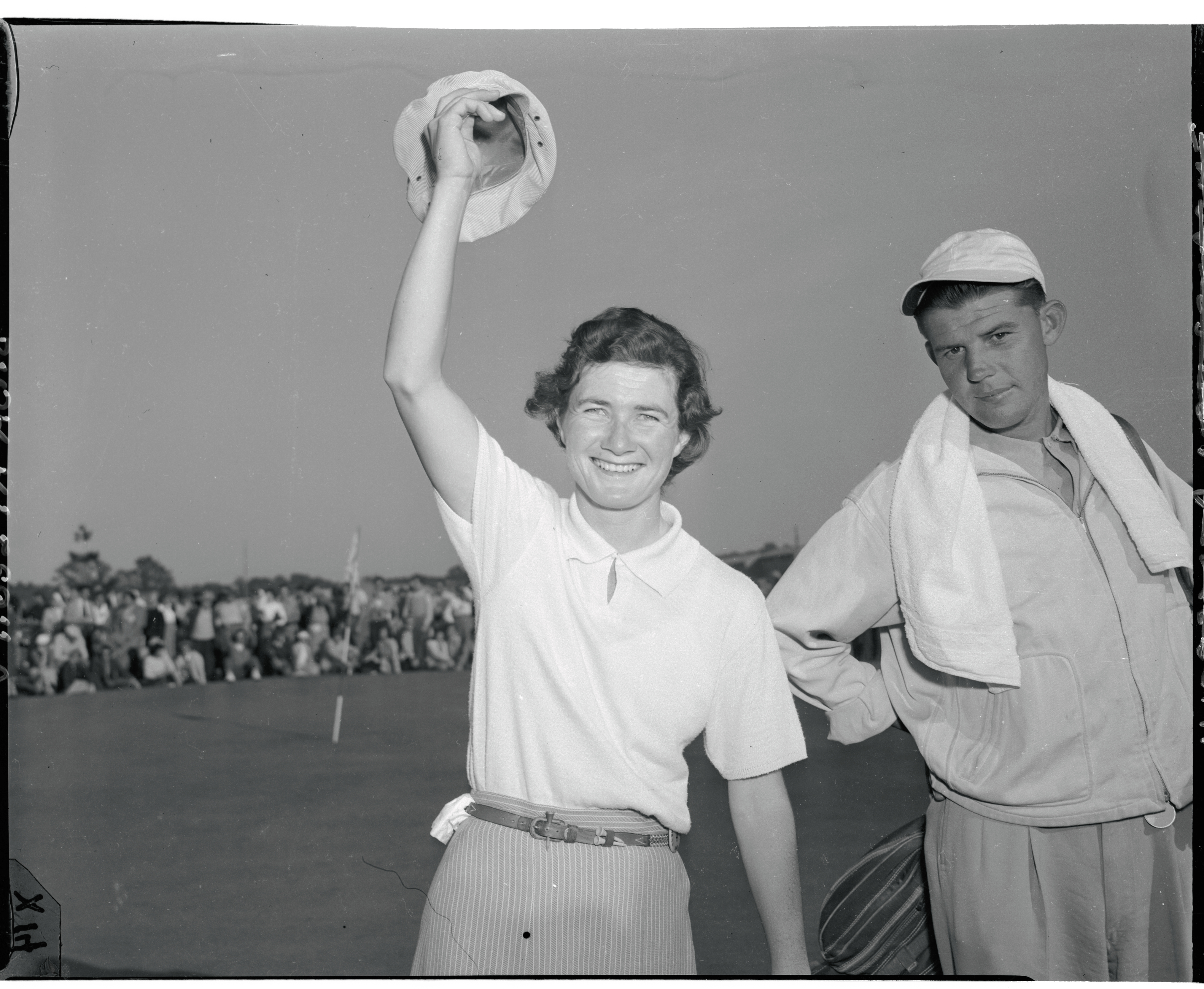
2. Who Has The Lowest Winning Score?
Two players have won the US Women's Open four times – Betsy Rawls (1951, 1953, 1957, 1960) and Mickey Wright (1958, 1959, 1961, 1964). But the biggest winning margin came before their dominance and in just the fourth version of the Championship when Louise Suggs prevailed by an incredible 14 strokes. This took place at Prince George's Golf and Country Club in Maryland where Suggs unsurprisingly went wire-to-wire going 69-75-77-70 on the par-75 layout. Suggs, who would win 11 Majors in total, would pick up $1,500 for her efforts.
Karrie Webb triumphed by five and eight strokes to kick off the new millennium but no other player has won by four or more shots.
The highest winning score, to par, came in 1962 when 23-year-old Murle Lindstrom had a total of +13 at Myrtle Beach – the halfway cut fell at +22.

3. Has An Amateur Ever Won The US Women's Open?
You would have to go back to 1933 to find the last men’s amateur winner of this Championship but Catherine Lacoste won the women’s version as recently as 1967 at The Homestead in Virginia. Morgan Pressel and Brittany Lang (2005) tied for second, 30 years after Nancy Lopez did likewise 30 years earlier. The Frenchwoman remains the only amateur to win the US Women’s Open. Lacoste would celebrate her 22nd birthday two days before the championship began and, by the final round, she would lead by three.
That would be extended to seven but some bad weather and a few nerves saw that advantage slashed to two before a birdie on 17 secured the victory. The first and second prizes of $7,200 were shared by runners-up Susie Maxwell and Beth Stone. To add even more cool elements to this story Lacoste's father, Rene, was the creator of the Lacoste tennis shirt and the new US Open champ would never turn pro.
Defending her title in 1968 Lacoste tied for 13th and she would never play in it again, the following year she would land the prized double of the US Women's Amateur and the British Amateur, becoming the third woman in golfing history to achieve that feat in the same year. Lacoste would retire at the age of 25.
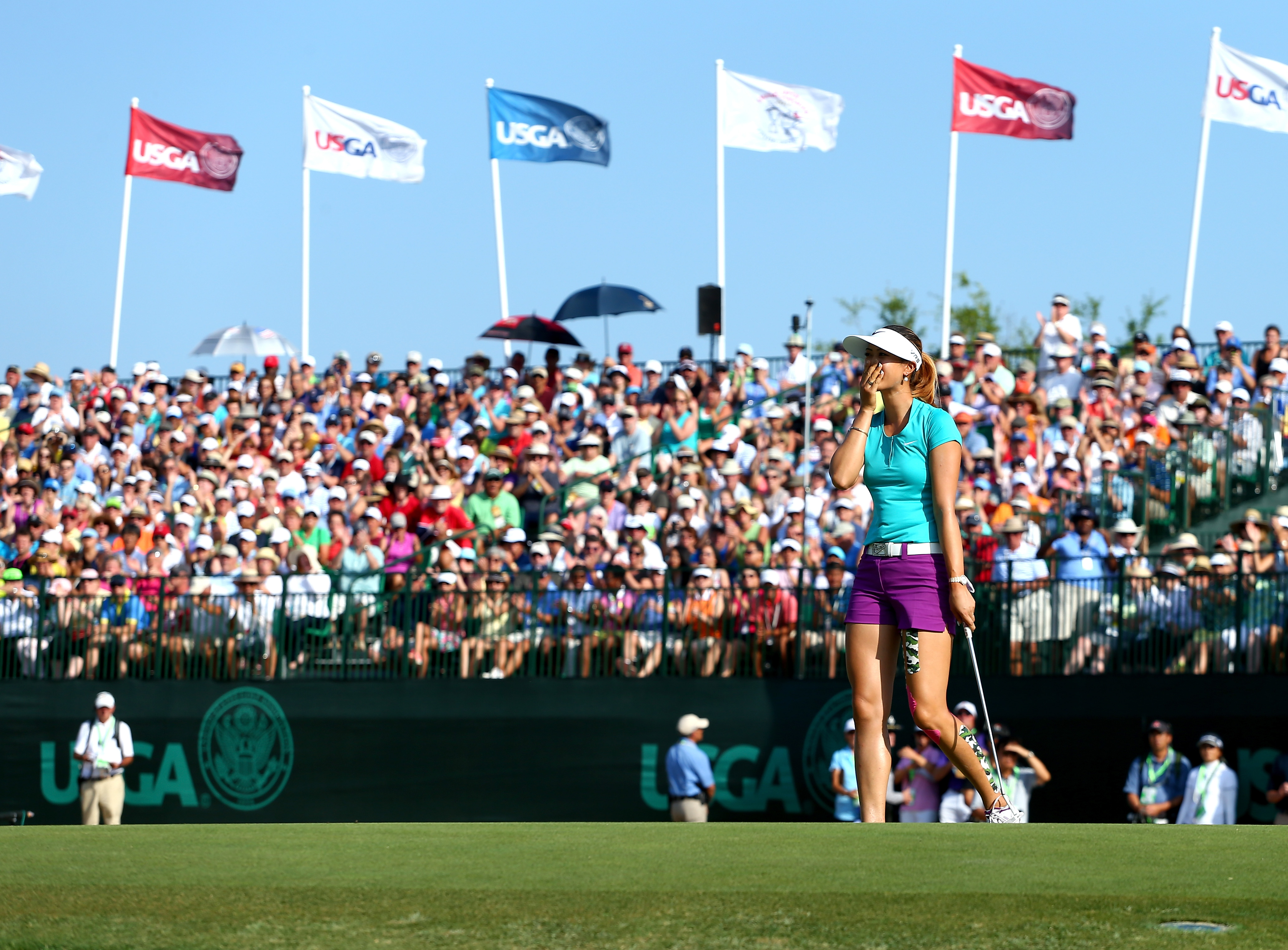
4. Have The Two US Opens Been Played At The Same Course?
In 2014 we saw the first time that we had the US Women’s Open being played on the same course in the same year as the men’s US Open. The reason behind it wasn’t to save on operational costs but more the opportunity to compare and showcase the men’s and women’ games on the same stage. The idea was the USGA’s former executive director David Fay’s who likened it to the US Open tennis, albeit in successive weeks, and we had the perfect stage in Pinehurst No. 2. The men would go first, which was won by Martin Kaymer, and then the women.
The German would win by eight and Michelle Wie was coasting to victory when she doubled the 16th. But she would then knock in a 25-footer at the next and par the last for a two -shot victory and her sole Major victory.
"I think that scene on 18, being on network TV, as many people as we had around there at Pinehurst No. 2 and Michelle Wie winning the tournament, I don't think you can script it any better," runner-up Stacy Lewis said. "I think it's great for the game of golf. I think it's even better for women's golf. I'm so happy for Michelle Wie. I mean, this has been such a long time coming for her."
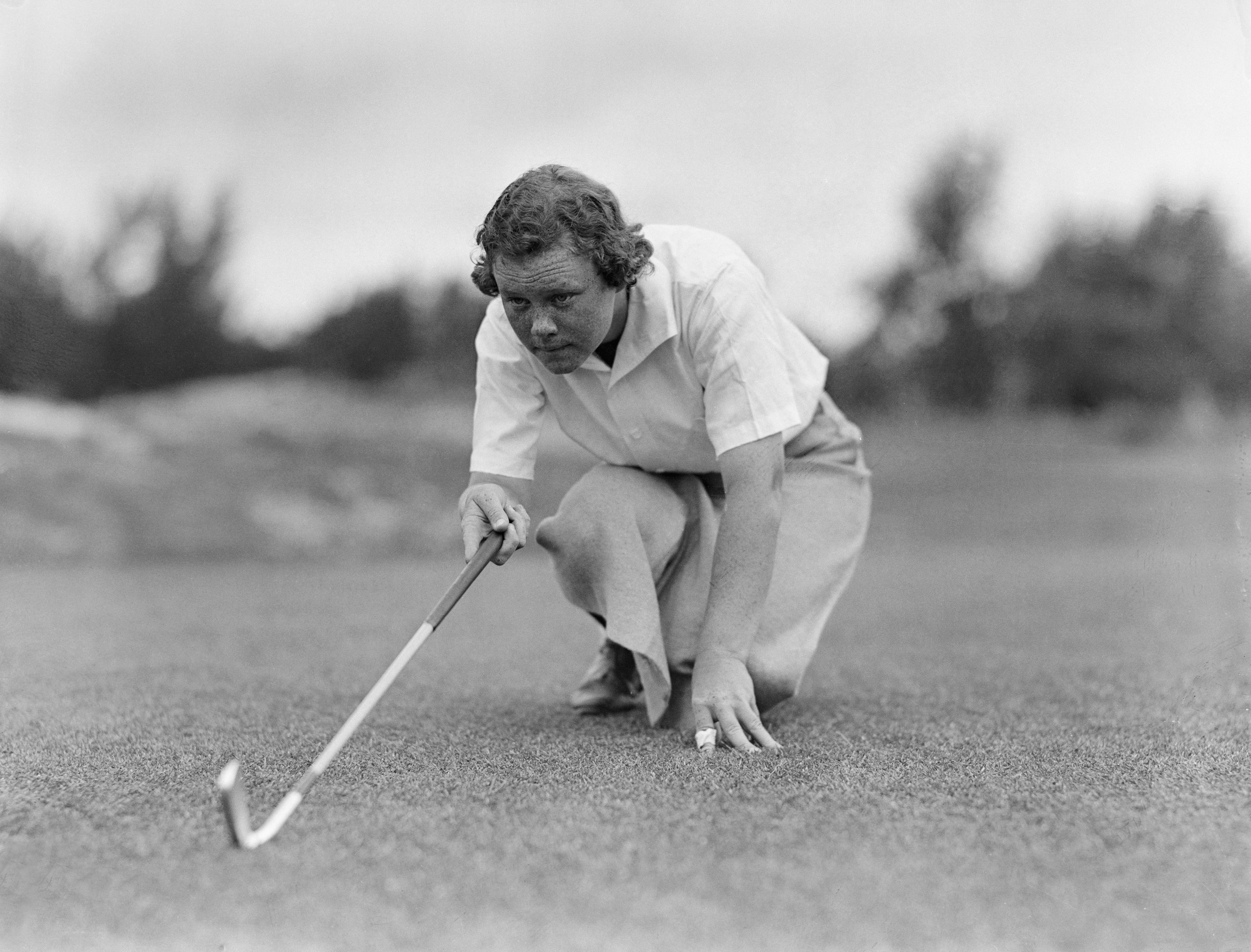
5. What Did The First US Women's Open Look Like?
The first US Women's Open was in fact a matchplay tournament and it would be won by Patty Berg at Spokane Country Club near Washington in 1946. The American would win 15 Majors, more than any other woman, but this would be her only US Women's Open victory – in the next 13 Opens her worst finish would be 12th. There was a field of 39 which would be reduced to 32, 26 pros and six amateurs, after 36 holes of qualifying. Berg would be seeded No. 1 after heading the qualifying by 13 shots and she would breeze to the final, her closest match being a 3&2 semi-final triumph.
In the 36-hole final Berg would beat fellow pro Betty Jameson 5&4. Jameson, who would win the following year's championship, actually led by three holes early on before being pegged back to all square at lunch. After that Berg forged ahead to collect the $5,600 first prize which was paid in war bonds.
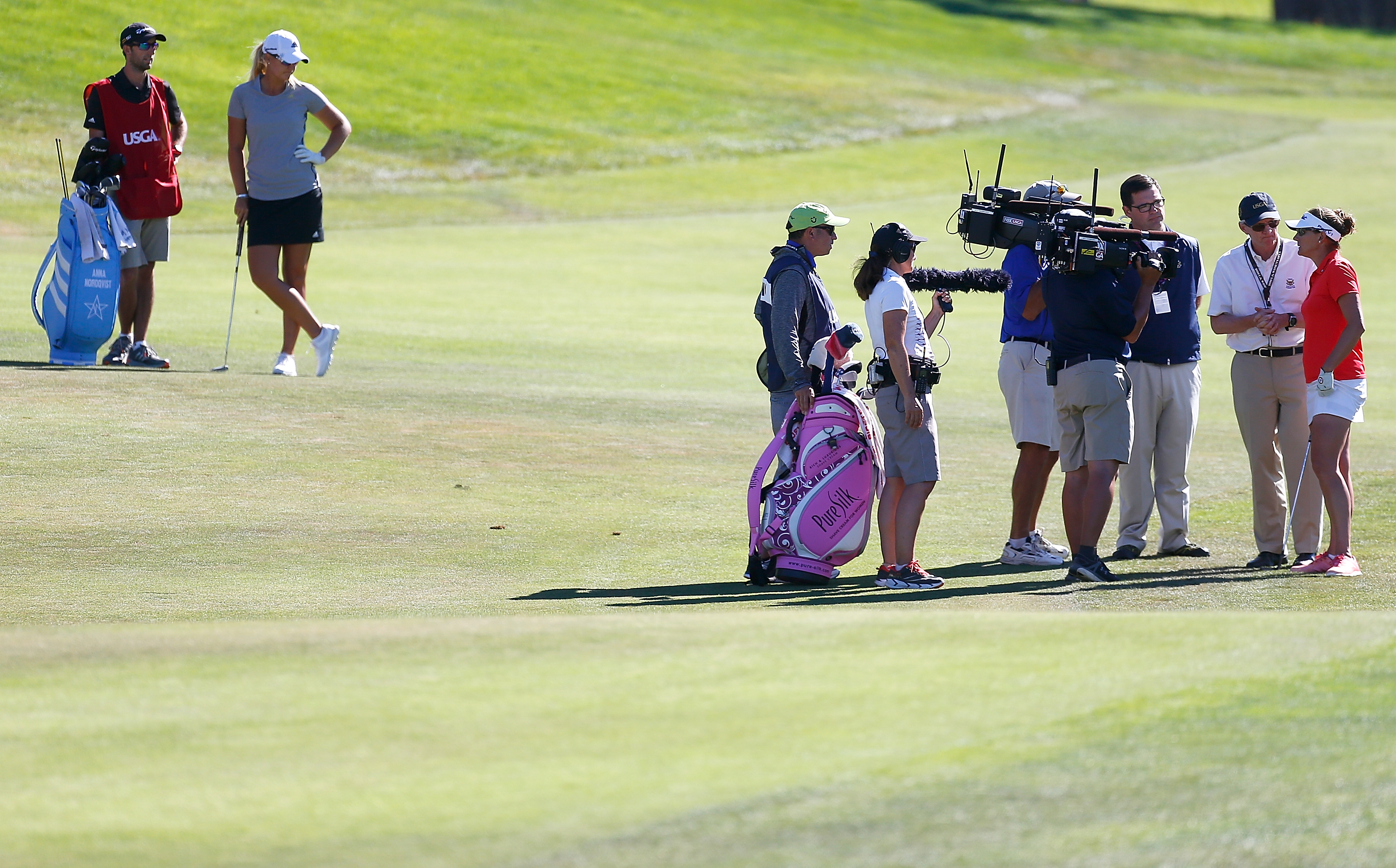
6. How Many Play-Offs Have There Been?
There have been 14 play-offs and none more so than Brittany Lang’s win in 2016. Less than a month after Dustin Johnson’s rules shambles at the men’s Open we had an even bigger mess at Cordevalle GC.
Anna Nordqvist glanced the sand at the second of three play-off holes, which was picked up on TV, but was only told about the two-shot penalty after she had hit her third shot to the final play-off hole. To make matters worse for the USGA they told Lang before she would hit her approach shot. The Swede explained that, while the ruling was fair, their timing was lousy.
“I wish the USGA would have told me a bit earlier,” said Nordqvist. "They approached me after I already hit my third shot into 18, then kind of ran up to Brittany to tell her that I got penalised. I don’t know if it would have changed the outcome but it certainly would have changed my aggressiveness into the 18th pin.”
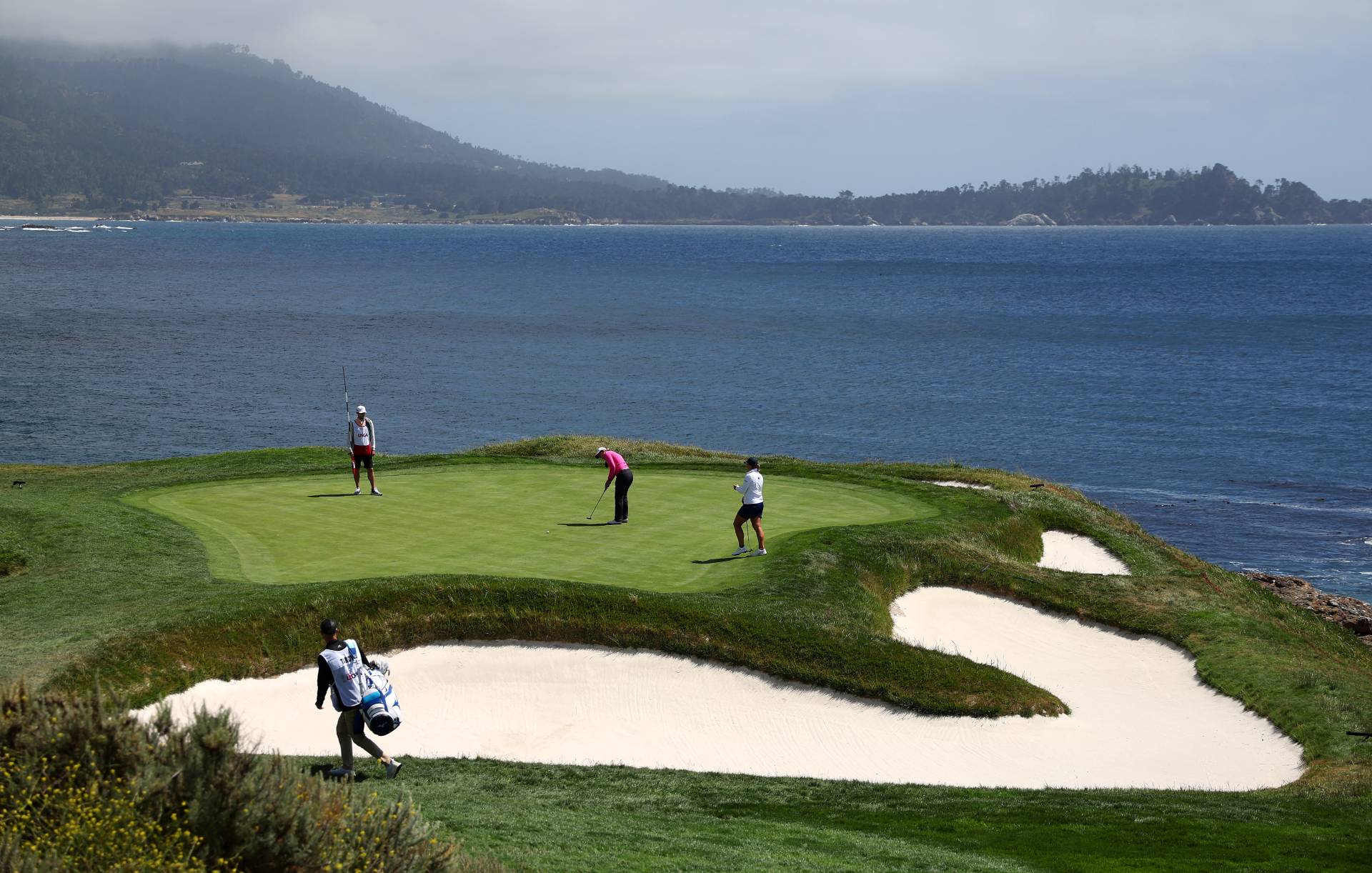
7. What Are The Quality Of The Courses Like?
There’s not much room for conjecture with the future venues of the US Women’s Open. We know for sure where the 2036 version will be (Shinnecock Hills) and we even know that Pebble Beach will stage the 2040 and 2048 championships. This year’s hosts, Lancaster Country Club, have staged one US Women’s Open before in 2015 and then we can look forward to some new but very familiar venues.
In the coming years we’ll see the mighty likes of Erin Hills, Riviera, Oakland Hills, LA Country Club, Chicago, Merion and Shinnecock Hills open their doors to the women’s leading Major. On top of that the championship will return to Oakmont, Pinehurst No 2, Interlachen and Pebble Beach so it’s safe to say that the women’s and men’s US Opens are very much on an equal footing these days.
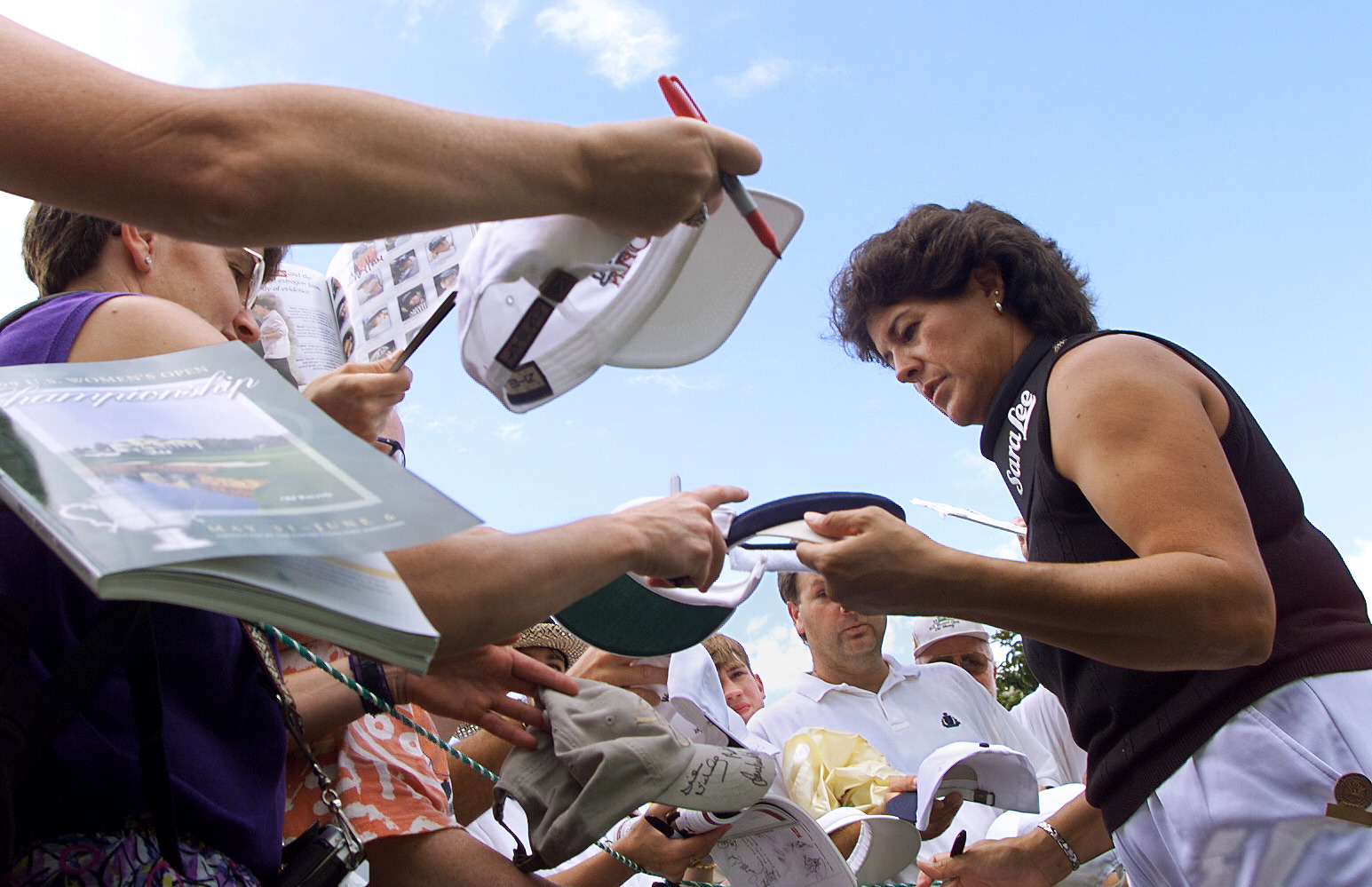
8. Which Big Names Haven't Won The US Women's Open?
The majority of the leading players in the women’s game – Nelly Korda, Lilia Vu and Celine Boutier among them – have yet to win this one. Korda’s best effort to date is a tie for eighth in 2022. Delve a little deeper and we have a host of huge names who didn’t manage to land this one. Kathy Whitworth won 88 times on tour, more than anyone else on the LPGA and PGA Tours, but she never managed better than a second place in 1971 and even that was a seven-stroke deficit to JoAnne Carner.
In the men’s game Phil Mickelson finished runner-up in the US Open six times, in the women’s game we have Nancy Lopez. The American first played in the Open in 1974 as an amateur, the following year she would tie for second while still a non-professional. In total there would be nine top 10s, four of which were second places. In 1997, at the age of 40, she would become the first player to shoot four rounds in the 60s but it still wasn’t enough as she lost out to Alison Nicholas by a single shot.
“This should have been the one, darn it,” she would reflect afterwards.
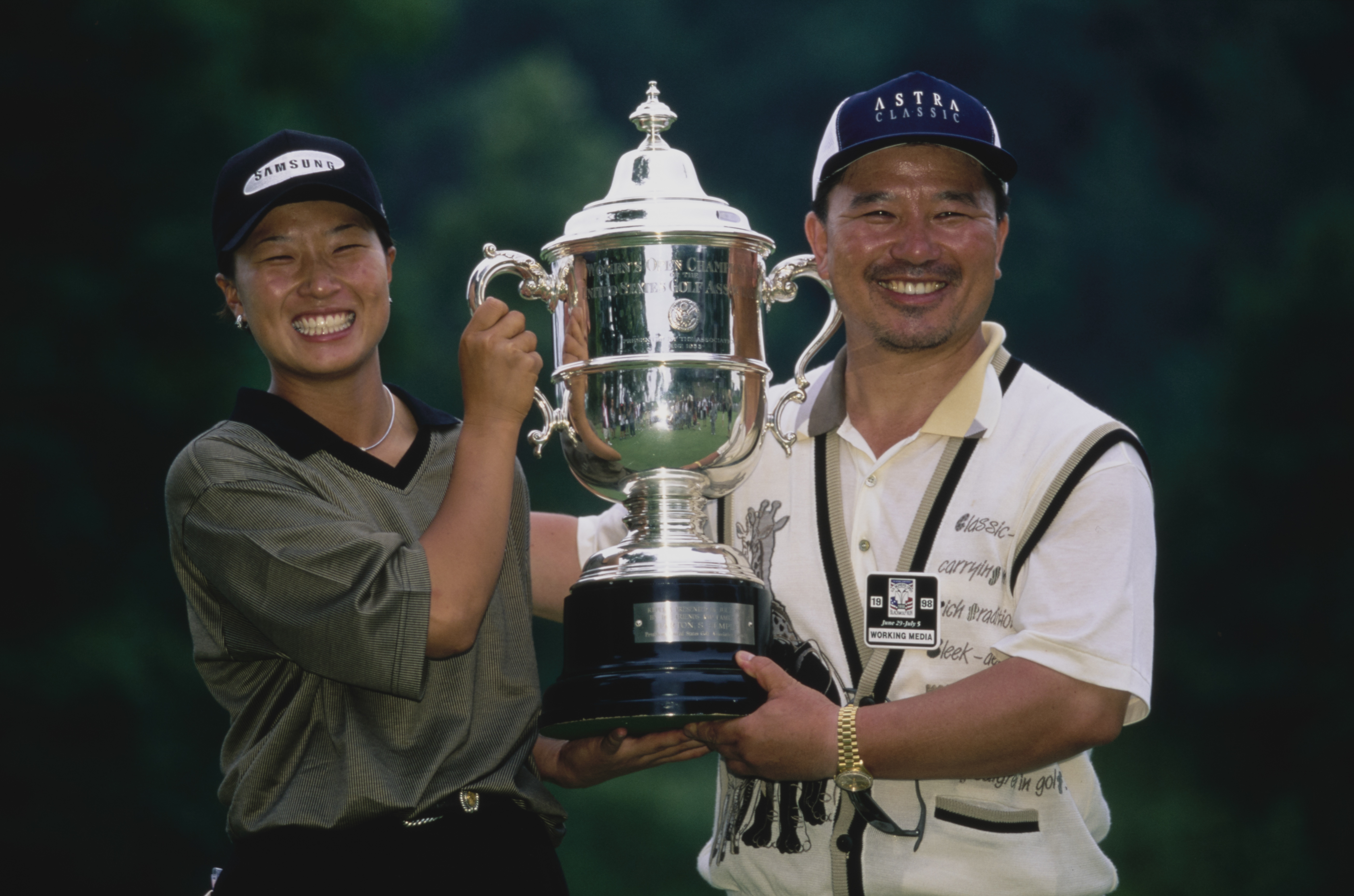
9. When Did The Koreans Begin To Dominate?
We have now had 11 Korean winners of the US Women's Open but the first came as recently as 1998. Then a 20-year-old Se Ri Pak, who had only joined the LPGA Tour full-time that year, would add the US Women's Open to the LPGA Championship that she had won a few years earlier.
At Blackwolf Run it would take 92 holes to see off Jenny Chuasiriporn, a 20-year-old Duke undergraduate who made a 40-foot putt on the 18th hole to force extra holes. The event was televised in South Korea and has always been pointed to as one of the most pivotal moments in women's golf – Pak would end her career with five Major wins. As things stand we are now at 35 Major successes by the Korean women.
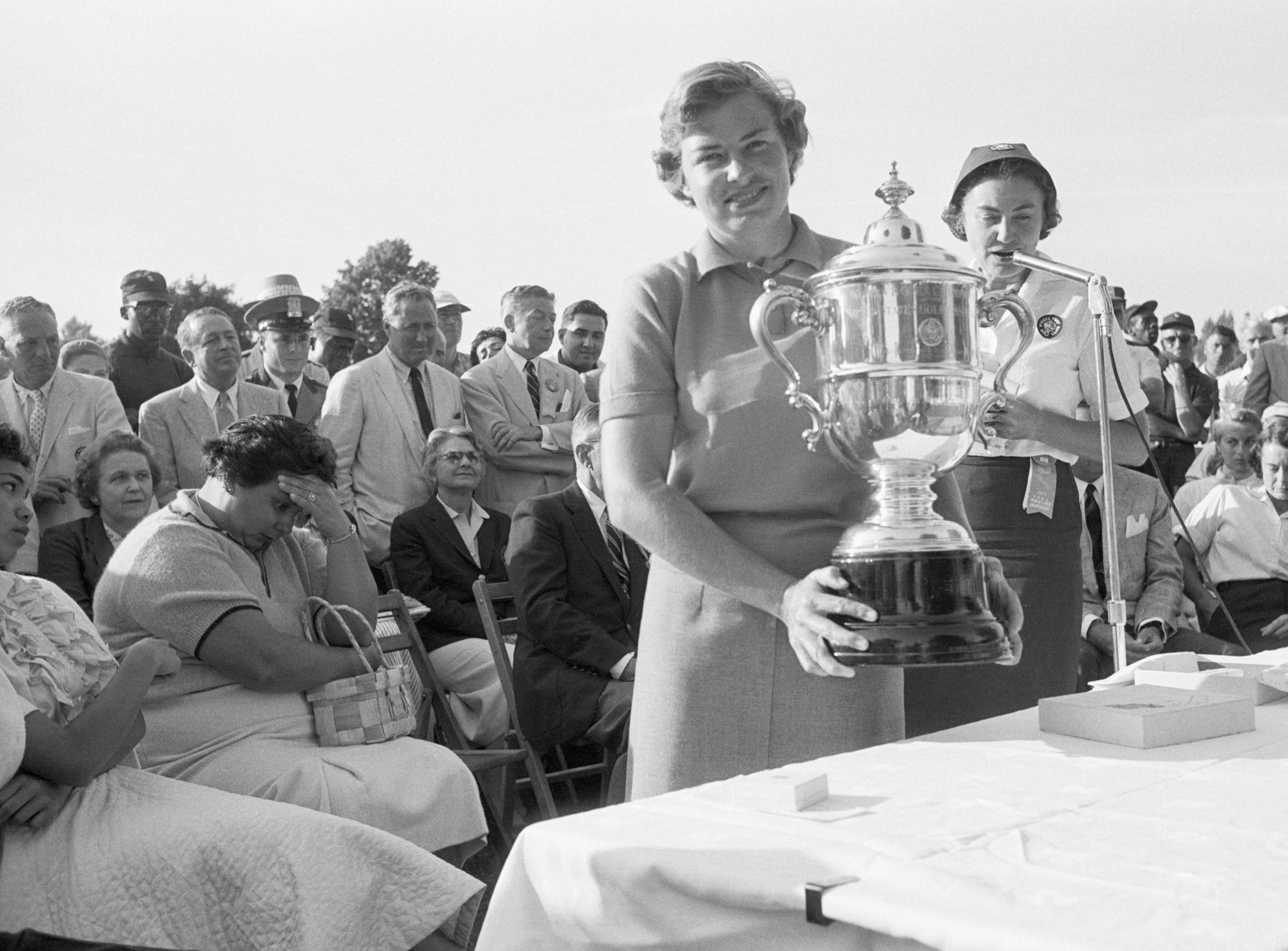
10. Which Player Has Been The Most Unlucky Not To Have Won?
It's not often we get an asterisk next to a winner's name but the 1957 Open at Winged Foot was such an occasion. Betsy Rawls would count this as one of her eight Major wins but Jackie Pung would beat her by a shot – the problem was that she had got her scorecard wrong. Her playing partner, Betty Jameson, had the right score, a 72, but she put her down for a five on the 4th hole when she had made a six. Bizarrely Pung had done the same thing on Jameson's card and both players were disqualified.
The Hawaiian managed to say a few words at the prize-giving: “Winning the Open is the greatest thing in golf. I have come close before. This time I thought I’d won. But I didn’t. Golf is played by rules and I broke a rule. I’ve learned a lesson. And I have two broad shoulders.”
Over the course of the week the Winged Foot members had become fond of Pung and there would be a collection for her which raised over $3,000 – Berg's prize was only $1,800.







